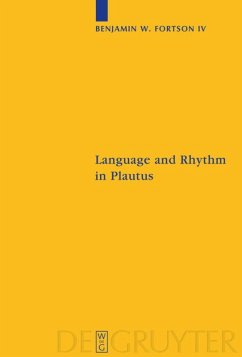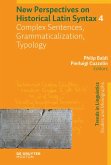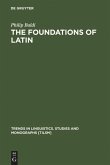The plays of Plautus have long been recognized as a unique mine of information about the spoken Latin of the 3rd and 2nd centuries BC. But detailed and up-to-date linguistic treatments of the Plautine meters and other phenomena in his plays have hitherto been lacking. This book seeks to remedy that gap by presenting a series of case-studies to glean information about the synchronic grammar of Plautine Latin, in particular the rhythmic organization of Latin speech and the effects of syntactic processes on Latin prosodic phonology. Some of the topics, such as enjambement and the aphaeresis of â??estâ?, have never before received such treatment, while others, such as Meyerâ??s and Luchsâ??s laws, split resolutions, and iambic shortening, are provided a firmer linguistic footing, and fuller discussion of allied issues, than hitherto. Topics in Italic syntax (such as the syntactic structure of adpositional phrases and their history) and in Indo-European morphophonology (such as the prosodic status of finite verbs) are dealt with as well, as is an investigation into the effects of pragmatics on the rhythmic organization of phrases. The book will be of interest to classicists, comparative philologists, and general linguists.
"Das Buch ist mit viel Elan und mit großer Begeisterung geschrieben und trotz der Schwierigkeit der Materie für den hier eingearbeiteten Leser gut verständlich. Besonders hervorgehoben sei noch die Vielseitigkeit des Autors, der neben einer Fülle von plautinischen Belegen auch Vergleichsmaterial aus anderen Autoren und den verschiedensten Sprachen heranzieht."
Walter Stockert in: Gnomon 2/2010
Walter Stockert in: Gnomon 2/2010








